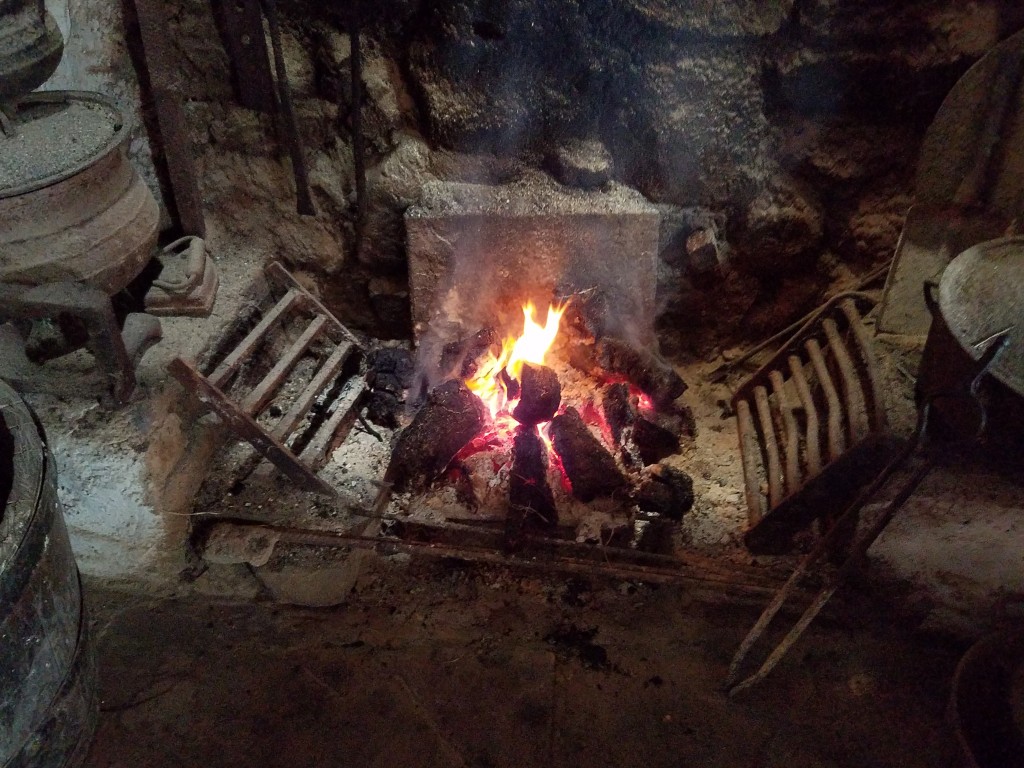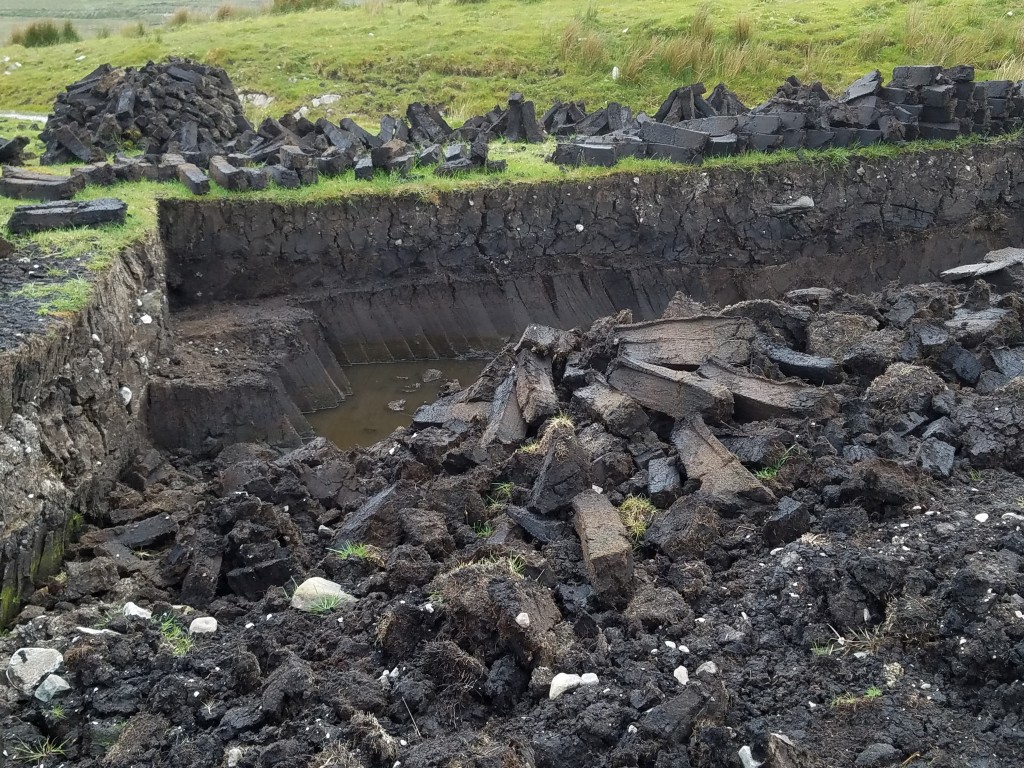A huge amount of Ireland consists of peat moss, or peat bog. Take your pick. Ever resourceful, the Irish realized there were many things that could be done with this turf. For one thing, it burns, nice and slow, and can warm a house quite readily, and unlike wood, it doesn’t burn up quickly. Behold the peat fire, in the old cottage of Dan O’Hara.
So here’s what we are talking about– the digging up of turf in the form of briskets, the allowing them to cure or dry, and then using them to heat a home. Who needs trees when you have dirt everywhere?
You need a specific kind of l-shaped shovel to dig this up into the form of the long cylindrical blocks you see. Here’s what they look like stored in a shed for drying. 
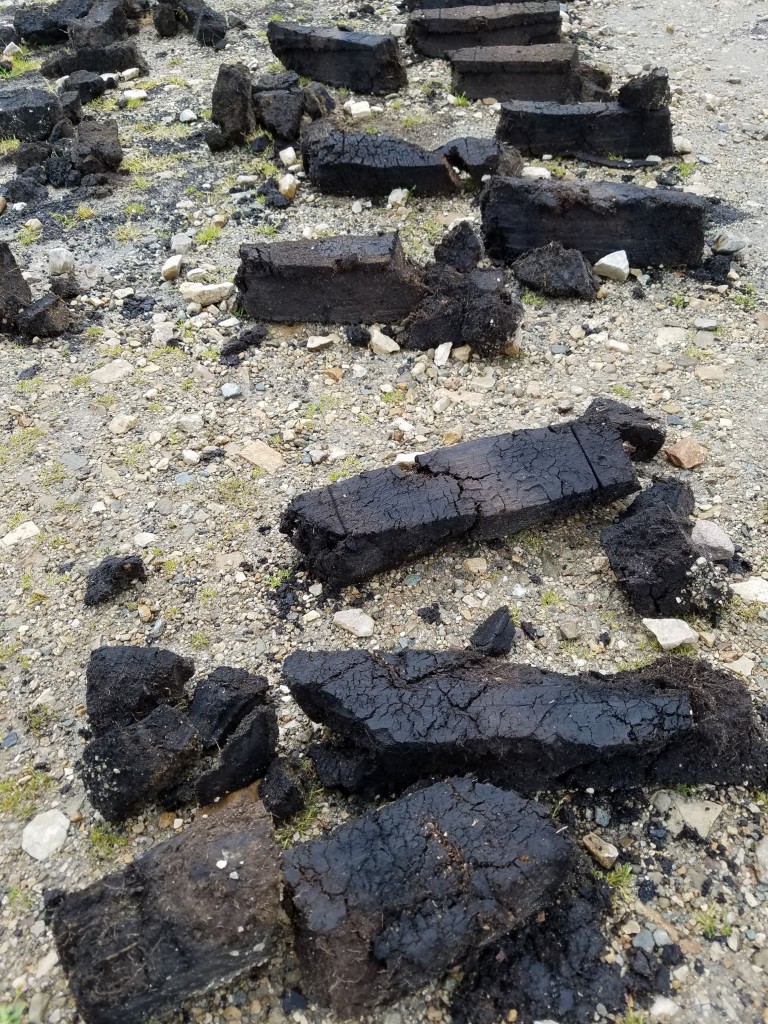
This is what a tended peat field looks like before its dug up…
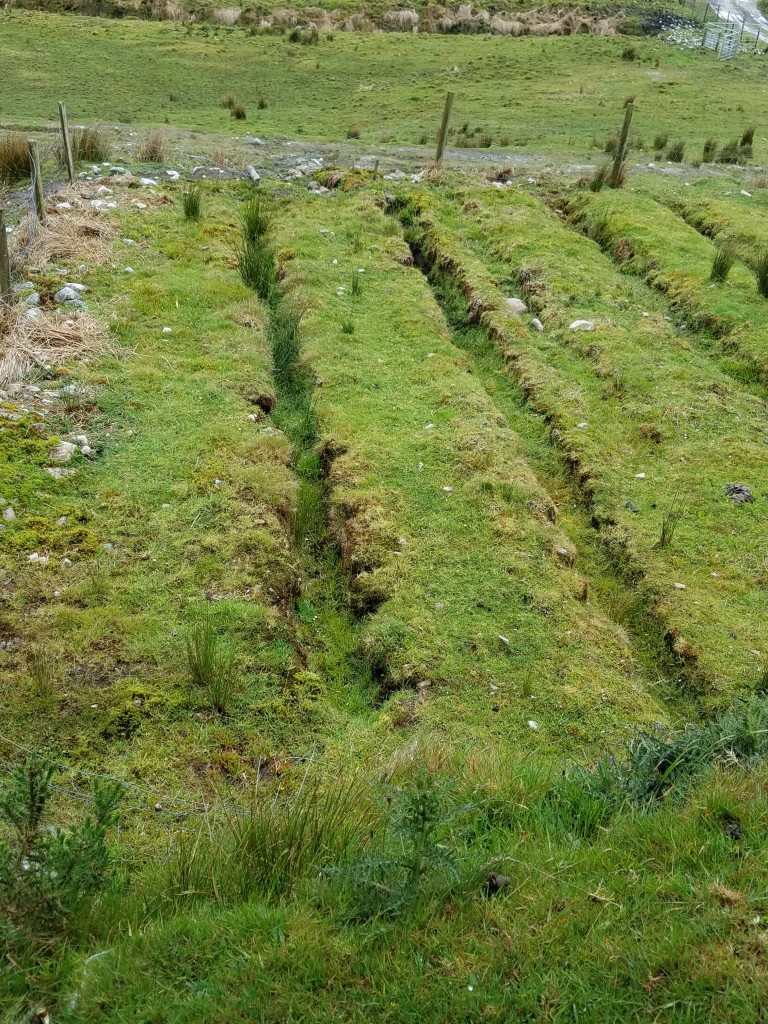 That’s enough about that, for peat’s sake. You’ve now got the inside dirt on their fire materials, back to Dan O’Hara, its a harrowing tale. Here’s his cottage up on a hill.
That’s enough about that, for peat’s sake. You’ve now got the inside dirt on their fire materials, back to Dan O’Hara, its a harrowing tale. Here’s his cottage up on a hill.


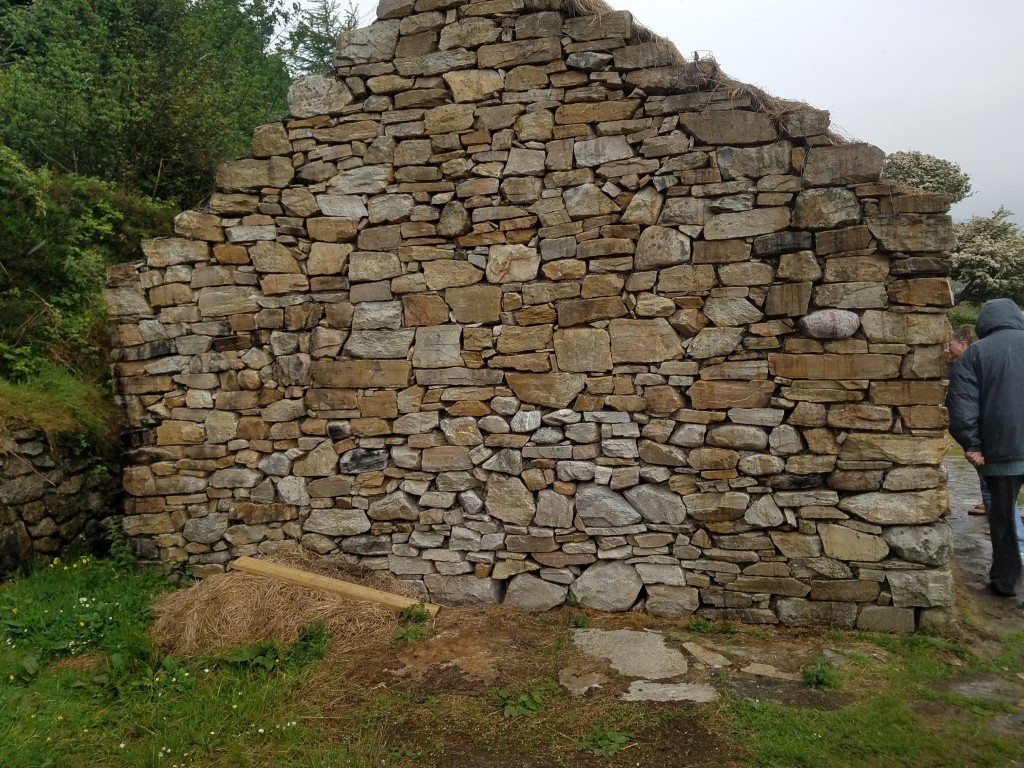
Here is the inside of Dan O’Hara’s house. 


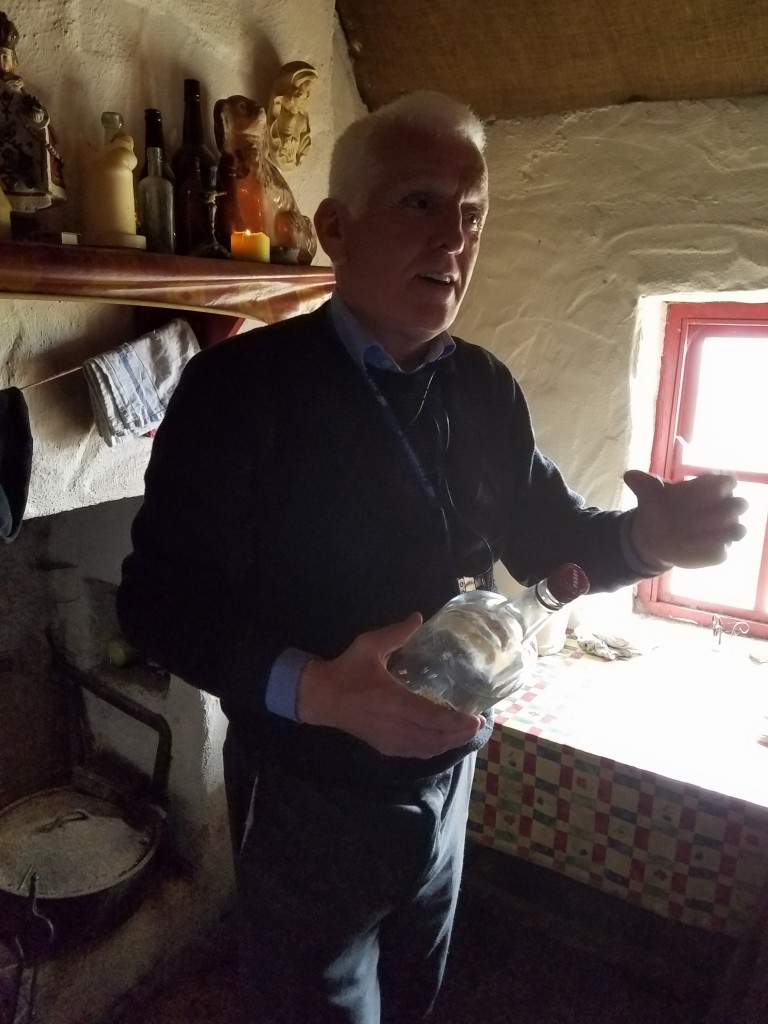
Dan was a typical Irish lad, so he would have a wee dram of whiskey, homemade fire water, from time to time. Oh… about 200 proof maybe. He’d stare up at the ceiling, and see peat insulation under the outer roof….
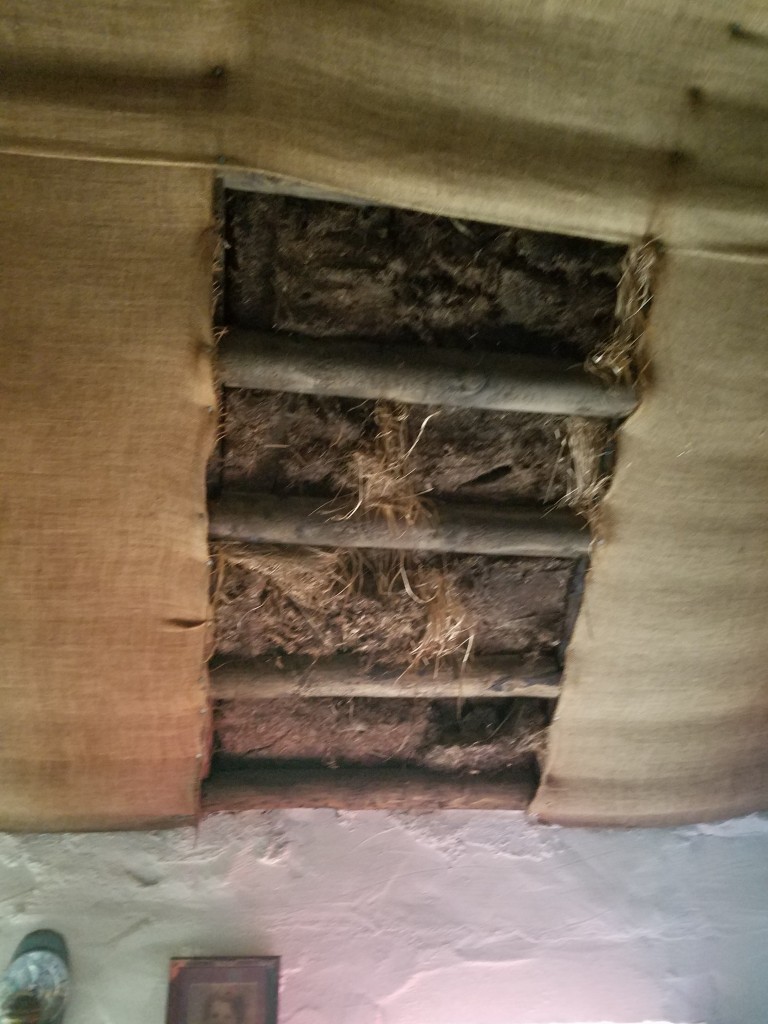 Maybe he even knew about specialty uses of peat, connecting it with pubs (and by the way, burning peat smells fine, it does not stink).
Maybe he even knew about specialty uses of peat, connecting it with pubs (and by the way, burning peat smells fine, it does not stink).
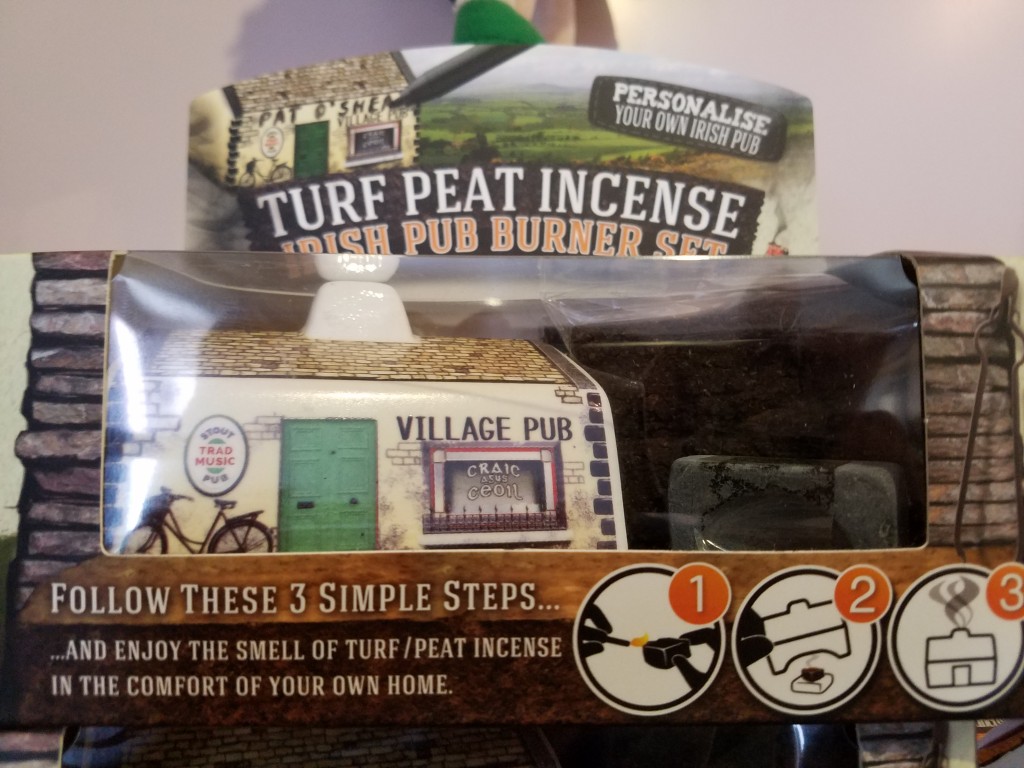 Maybe he would stare up at the farm implements hanging on the wall and smoke his pipe.
Maybe he would stare up at the farm implements hanging on the wall and smoke his pipe.
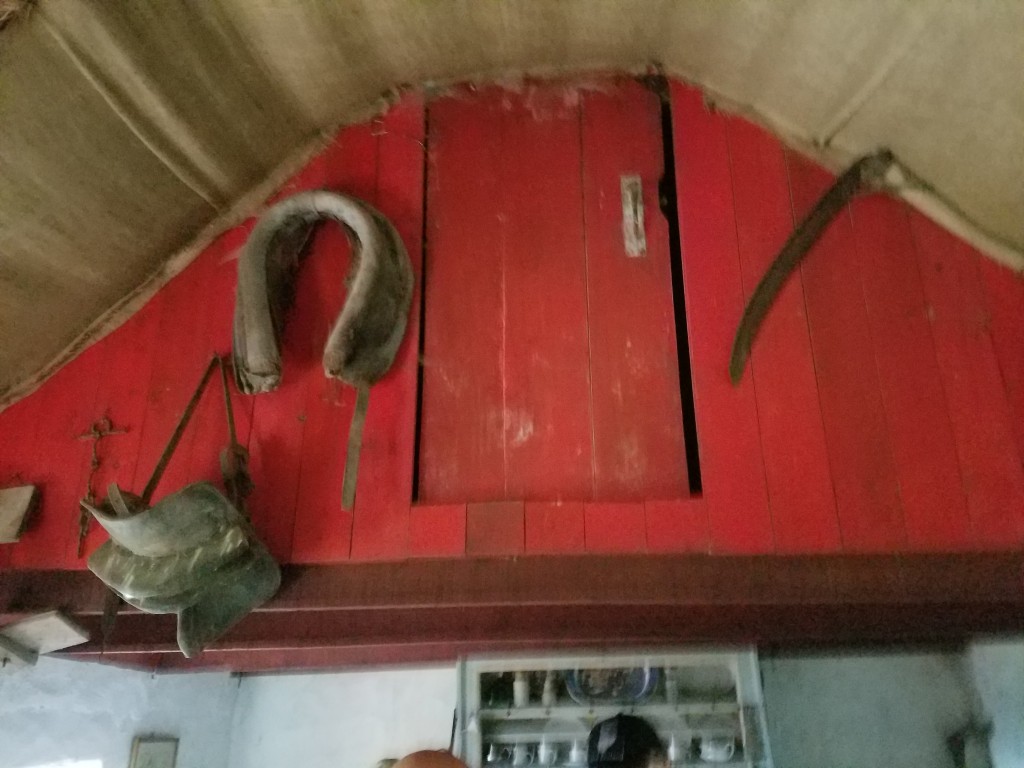 Maybe he’d leave the door open and enjoy the view from his little hill.
Maybe he’d leave the door open and enjoy the view from his little hill.
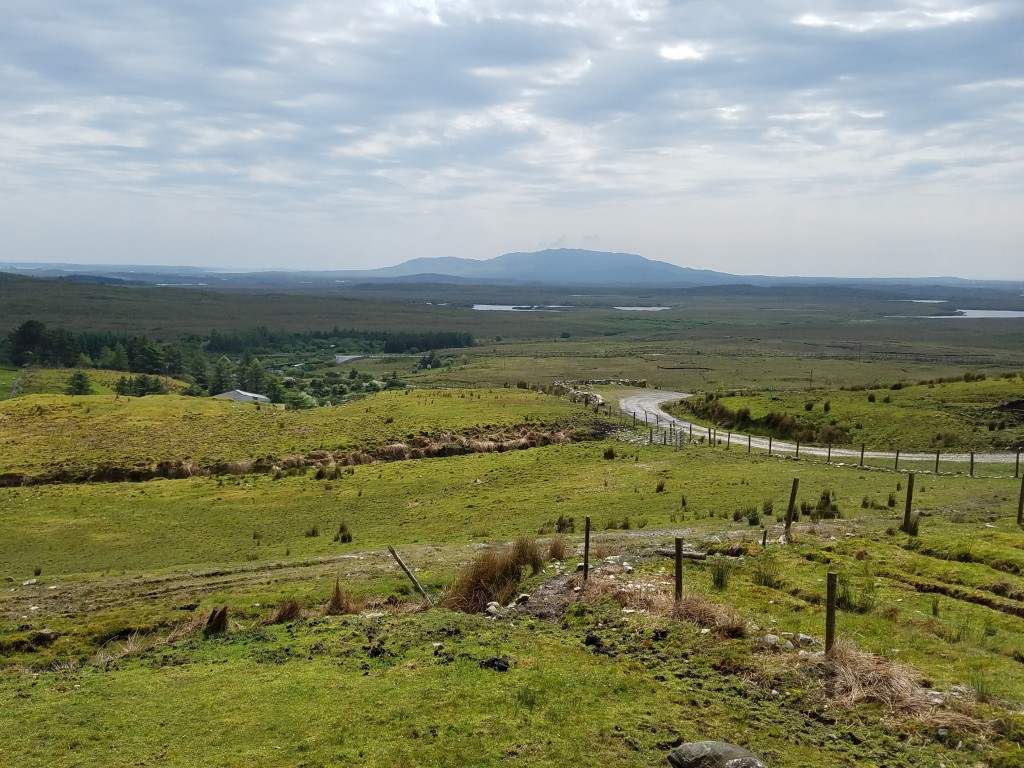 Or maybe he’d make some delicious soda bread…
Or maybe he’d make some delicious soda bread…
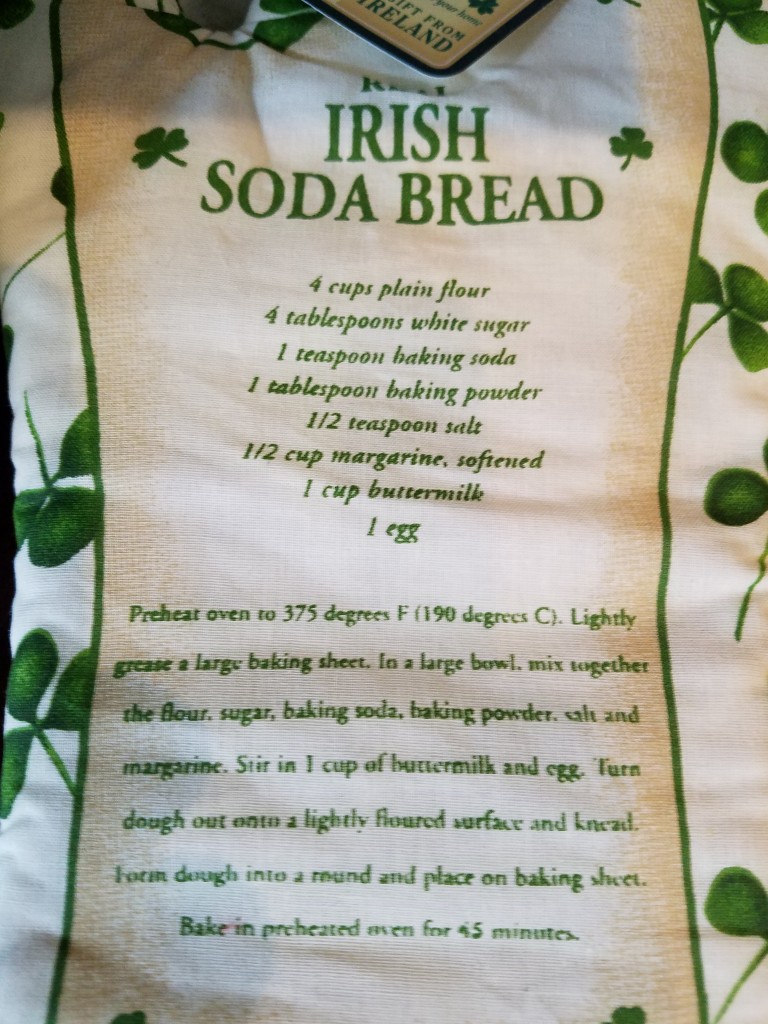 I wish I could tell you he lived a normal happy life on the farm. But it’s not true. His life is the stuff that a sad ballad was made of.
I wish I could tell you he lived a normal happy life on the farm. But it’s not true. His life is the stuff that a sad ballad was made of.
You see there was a potato famine, in the 1840, and he grew potatoes to make a living. Most of Dan O’Hara’s land was given over to the potato crop.
Here’s how one website describes his fate:
“It’s advantage was that it grew in the poorest conditions and an acre and a half would sustain five or six people for six months. Some of the crop was used to feed a pig. Potatoes along with buttermilk ensured that the population of Connemara at the time was robust and healthy although poor. Like most people in Connemara at the time Dan O’Hara did not own the house he lived in or the land. He paid rent to the local landlord. His simple but happy lifestyle came abruptly to an end when he was evicted for non payment of his rent. He had decided to increase the size of the windows in his house and this led to increased rent payments. He was evicted from his home and forced to emigrate. He arrived in New York, a broken man. His wife and three of his children died on the harsh sea journey and penniless and destitute he had to put the remaining children into care. He ended his days selling matches on the street far from his beloved Connemara.” http://www.connemaraheritage.com/danoharahomestead.htm
And here is how his ballad ends—
Sure it’ poor I am today,
For God gave and took away,
And left without a home poor Dan O’Hara
With these matches in my hand,
In the frost and snow I stand
So it’s here I am today your brokenhearted
‘


